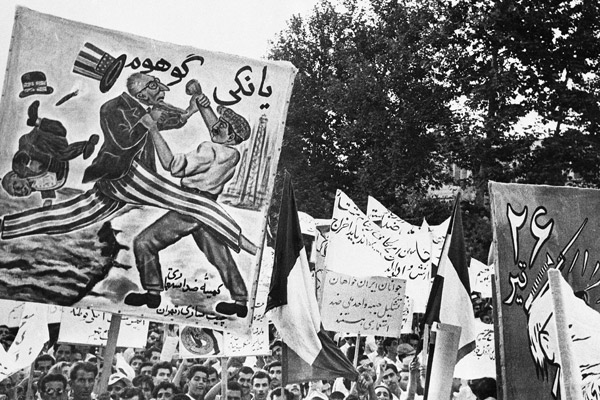‘What is your idea about Iran?’ friendly Iranians are heard to ask the few foreign visitors who still come their way. One is never quite sure whether by ‘idea’ they mean ‘impression’, ‘opinion’ or ‘theory’. Inspiring landscapes, fine cuisine and a tradition of hospitality make the first category easy ground. The second pertains to politics, and may lead the traveller into the most illuminating, entertaining and disturbing conversations he has ever had. The third, be warned, is dragon country.
British theories are infamous. A 1951 Foreign Office document identified Iranians as a people keen on poetry and abstract ideas, but emotional and lacking common sense. It claimed they were best understood as ‘unwilling to subordinate personal interests to communal ones’, ‘ready to do most things for money’ and ‘ready to blame other people’. A memorandum entitled ‘The Persian Character’, issued by the Persian Oil Working Company the same year, defined Iranians as dishonest, vain, unprincipled and motivated by personal gain.

Get Britain's best politics newsletters
Register to get The Spectator's insight and opinion straight to your inbox. You can then read two free articles each week.
Already a subscriber? Log in






Comments
Join the debate for just £1 a month
Be part of the conversation with other Spectator readers by getting your first three months for £3.
UNLOCK ACCESS Just £1 a monthAlready a subscriber? Log in